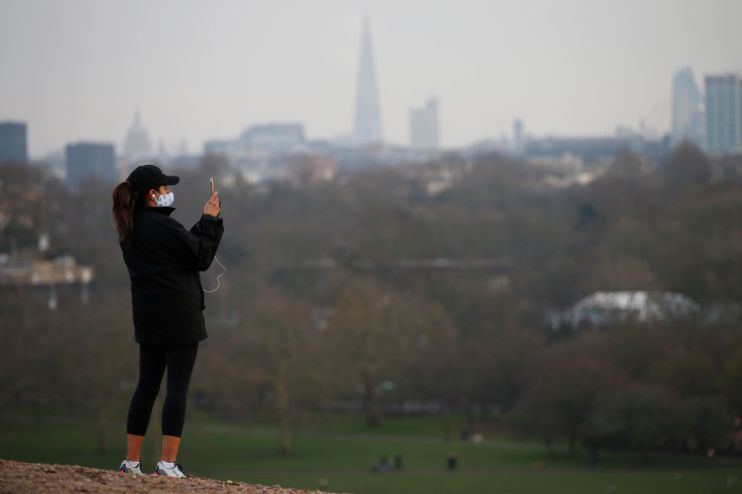Covid cases begin decline as ‘lockdown has worked’

Covid cases have begun to decline across the UK, according to the latest government-backed study, after England’s chief scientific adviser said there were early signs “lockdowns have worked”.
The latest figures from Imperial College London’s React study showed around 1.57 per cent of people in the UK had the virus between 6 and 22 January — slightly down from 1.58% in early January.
The estimate, based on swab tests of 168,000 households, showed prevalence of the virus was “going in the right direction” but “by no means as fast as in lockdown one”, said Steven Riley, professor of infectious disease dynamics at Imperial.
Infection levels varied across England, with signs of declines in London, the South East and South West, and indications of a plateau elsewhere.
London still has the highest proportion of people testing positive, with 2.8 per cent, or 1 in 35 people, thought to have been infected in the week to 22 January.
The figure hiked to four per cent in 13-to-24-year-olds.
However, the figures followed comments made by the government’s chief scientific adviser yesterday that current restrictions appear to have been successful in driving down infection rates.
Speaking at a Downing Street press conference, Sir Patrick Vallance said Covid cases around the UK were beginning to level off, and in some regions decline.
“We are at a position where the lockdowns have worked. They’ve slowed this down, they reached a position where it’s reached a plateau and is beginning to decline,” he said.
“We see that in cases, we see it in hospital admissions, and we’re beginning to see in deaths,” he said, before warning that it was still “early days”.
It comes as the UK reported a further 25,308 Covid cases in the past 24 hours — less than a third of the record 81,533 infections reported on 29 December.
However, the seven-day death toll remains high, as the NHS grapples with the effect of soaring cases over the Christmas period.
Britain reported a further 1,725 deaths in the past 24 hours, following yesterdays “grim milestone” of more than 100,000 Covid-related deaths since the start of the pandemic.
“This isn’t coming down quickly,” Vallance said. “We remain at very high levels and it’s going to take weeks for this to start to come down to really low level.”
The number of patients currently in hospital with coronavirus currently remains at an almost record level, with health officials warning that the NHS is on the verge of being overwhelmed.
Lockdown extended
Prime Minister Boris Johnson yesterday extended England’s nationwide lockdown until at least 8 March, having originally earmarked mid-February for beginning to lift restrictions.
Schools will remain closed until the spring, with the PM warning that infection rates remain “too high” to allow pupils to return to the classroom.
Asked if he could commit to 8 March as a firm date for reopening schools, Johnson told the Downing Street press conference: “That date is the earliest when schools might be able to go back.. We have to see evidence that those graphs are going down and the infection rate is in the right place.”
The movement has set 15 February as a target for vaccinating the 14.9m most-vulnerable members of the population. So far, almost 7m have received their first dose, including almost three-quarters of over-80s.
Johnson added that ministers would keep plans “under constant review — particularly on 15 February when we will know whether we’ve hit our target of getting those most vulnerable groups vaccinated.”